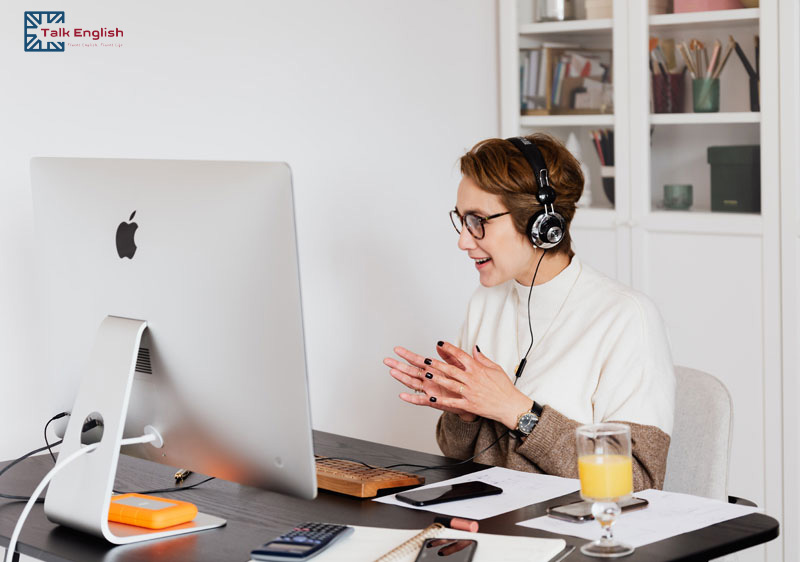10 cặp từ dễ gây nhầm lẫn nhất trong tiếng Anh
Affect / Effect

"Affect" is a verb meaning "to have an impact on."
- How will this news affect our business?
- Work-life balance can affect your mental health.
"Effect" is a noun meaning "a change produced by someone or something."
- Does this medicine have any side effects?
- We won't understand the effects of this decision for many years.
Than / Then
Use "than" to compare something to something else. It comes after an adjective.
- He is faster than any of the other racers.
- My new car is more reliable than my old one.
When used with "other," it can also mean "apart from" or "except."
- He doesn't go anywhere other than the grocery store and the library.
- Other than curry, I don't really like spicy foods.
"Then" is an adverb that indicates the next step in a series or process.
- Walk straight for two blocks, then turn left.
- I'm going to take a quick nap, then I'm going to study a little more.
Your / You’re
This pair is often confused in writing, but the difference between the two is simple.
"Your" is a possessive word, like "my," his," "hers" or "theirs."
- Is this your phone?
- What's your favorite movie?
"You're," however, is a contraction of "you are."
- You're coming to the dinner party tonight, right?
- That's a beautiful dress you're wearing.
Lose / Loose

"Lose" is a verb that is the opposite of "win." Its pronunciation is similar to "choose."
- Everyone expects us to lose this game, but we'll surprise them all.
- It doesn't matter if we win or lose; let's just have a good time playing.
"Loose" is an adjective that is the opposite of "tight." In other words, loose things can move around easily. Its pronunciation is similar to "goose."
- I used to be heavyset, so all of my old jeans are loose now.
- This screw feels a little loose. Can you hand me the screwdriver, please?
Beside / Besides
"Beside" is a preposition that means "next to."
- I have a picture of my wife and daughter beside my computer at work.
- The man sitting beside me in the movie theater fell asleep.
"Besides" is also a preposition, but it means "aside from ~."
- He doesn't have any friends besides us.
- Besides Italy, I've never been anywhere in Europe.
It can also mean "furthermore" or "in addition to that." Use it to add an extra reason or justification for something.
- I'm getting sleepy, so I'm going home now. Besides, I have to wake up early tomorrow.
- I don't want to upgrade my phone because it's so expensive. Besides, my old phone still works fine.
Except / Accept

"Except" means "not including." Use it when something is not part of a group.
- Everyone except James came to the meeting.
- I've read every book in the series except the final one.
"Accept" is a verb with several uses.
to receive or agree to
- Please accept this gift as a gesture of my appreciation.
- We accept your proposal.
- We accept cash, credit and debit cards.
to welcome, to be friendly to
- I was worried the other members wouldn't accept me, but they're all very friendly.
Although / Though
Use "although" at the beginning or in the middle of a sentence as another way to say "however" or "but."
- The train will get us there much faster. Although, it is quite expensive.
- The detective knew someone there was the killer, although he wasn't sure who.
- Although he's been living in this country for many years, he doesn't speak the local language.
"Though" is used in a similar way, but it can also be placed at the end of a sentence.
- The train will get us there much faster. It's quite expensive, though.
- The detective knew someone there was the killer. He wasn't sure who, though.
Bear / Bare
Of course, bears are the large, furry animals you can find in forests or in the zoo. But this word also has several meanings as a verb.
to carry weight
- These steel beams are strong enough to bear the weight of the heavy building materials.
to endure, to tolerate
- I can't bear that smell anymore. Let's open up the windows!
to give birth
- She's going to bear a child sometime in the next few weeks.
This usage sounds a bit formal; it is more common for people to say "have a baby."
- She's going to have a baby sometime in the next few weeks.
"Bare," on the other hand, is an adjective that also is used in multiple ways.
not covered or clothed
- We walked along the beach in our bare feet.
- We removed the old carpet to see the bare floorboards underneath.
empty
- The grocery store's shelves were completely bare.
basic
- A score of 80% is the bare minimum necessary to pass this test.
It is also used as a verb meaning "to uncover." This is often used figuratively.
- The author bared his soul in his emotional new book.
Breathe / Breath
The final "e" changes both the meaning and pronunciation of this pair of words.
"Breathe" is a verb for taking air into and out of your lungs.
- It became harder to breathe as we reached the top of the mountain.
- This device will let you breathe underwater.
Without the "e," "breath" is the noun for the air that goes into and out of lungs.
- He took a deep breath before doing his first skydive.
- The air is so cold, I can see my breath.
Farther / Further
As adverbs for comparing distances, this pair of words can be used in the same way.
- Do we have much farther to go?
- Do we have much further to go?
- We have to go even farther before we arrive.
- We have to go even further before we arrive.
- My home is farther away than yours.
- My home is further away than yours.
However, "further" can also be an adjective meaning "more" or "additional."
- For further details, please visit our website.
- We will require further discussion before we can announce a decision.
TIN TỨC LIÊN QUAN
Những Cách Nói Khác Của Từ “Weird” trong giao tiếp tiếng Anh
Học các cách thay thế “weird” trong tiếng Anh như unusual, odd, quirky, surreal… cùng ví dụ dễ hiểu và hướng dẫn dùng t�...
Khóa học tiếng Anh miễn phí cho người mất gốc – Xây lại nền tảng từ đầu cùng TalkEnglish.vn
Bạn mất gốc tiếng Anh? Hãy bắt đầu lại với khóa học tiếng Anh miễn phí từ TalkEnglish.vn – tập trung vào phát âm, t...
20+ Caption Chủ Đề Halloween Cho Bài Đăng Instagram (Hoặc Facebook, TikTok) Của Bạn!
Gợi ý 20+ caption tiếng Anh chủ đề Halloween độc đáo, vui nhộn và dễ nhớ để đăng Instagram, Facebook, TikTok – kèm từ ...



